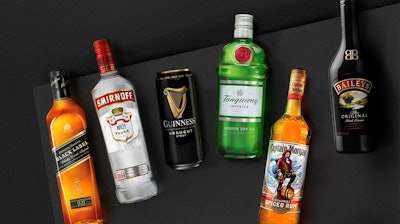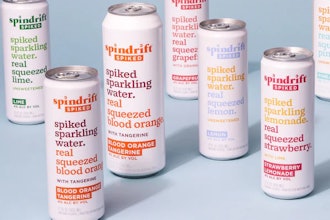
The Securities and Exchange Commission on Wednesday announced charges against alcohol producer Diageo for failing to make required disclosures of known trends relating to the shipments of unneeded products by its North American subsidiary to distributors. Diageo has agreed to pay $5 million to settle the action.
London-based Diageo owns the liquor and alcoholic beverage brands Bailey's, Bulleit, Captain Morgan, Crown Royal, Don Julio, Guinness, Johnnie Walker, Kettle One, Smirnoff and Tanquerrey, among others.
According to the SEC, employees at Diageo North America (DNA), Diageo's largest and most profitable subsidiary, pressured distributors to buy products in excess of demand in order to meet internal sales targets in the face of declining market conditions. The resulting increase in shipments enabled Diageo to meet performance targets and to report higher growth in key performance indicators that were closely followed by investors and analysts.
The SEC stated, "The order finds that Diageo failed to disclose the trends that resulted from shipping products in excess of demand, the positive impact the overshipping had on sales and profits, and the negative impact that the unnecessary increase in inventory would have on future growth. The order further finds that investors were instead left with the misleading impression that Diageo and DNA were able to achieve growth in certain key performance indicators through normal customer demand for Diageo's products."
Diageo has agreed to cease and desist, and released a brief investor statement Wednesday: "Diageo is pleased to have resolved this legacy matter, which relates back to fiscal years 2014 and 2015. Diageo regularly reviews and refines its policies and procedures and is committed to maintaining a robust and transparent disclosure process."
Earlier this month, Diageo opened its relocated North American headquarters in Lower Manhattan, NY's World Trade Center.
"Investors rely on public companies to make complete and accurate disclosures upon which they can base their investment decisions," said Melissa Hodgman, an associate director in the SEC's Division of Enforcement. "Diageo pressured distributors to take more products than they needed, creating a misleading picture of the company's financial results and its ability to meet key performance indicators."
The SEC said its order found that Diageo violated the antifraud provisions of Section 17(a)(2) and (3) of the Securities Act of 1933, as well as certain reporting provisions of the federal securities laws. The SEC added that Diageo didn't admit or deny the agency's findings.






















